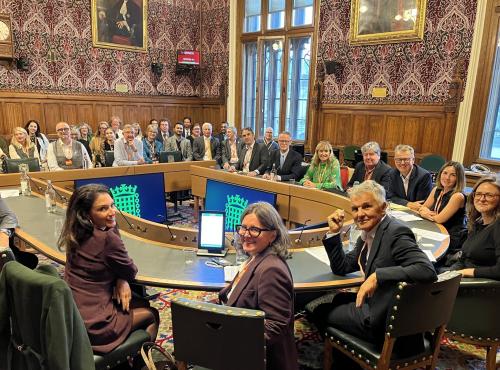Education Questions: Ministers promise a focus of Social Mobility
Education Questions in the House of Commons yesterday brought up many issues that our members might find interesting. While any mention of degree apprenticeships was disappointingly left out, the issues discussed included ensuring quality in apprenticeship standards, social mobility and higher education fees, funding for further education and T-levels progress.
The Minister for Apprenticeships and Skills, Anne Milton MP, after claiming that “a number of pots of money are now being made available to increase the number of teachers in further education”, conceded that “in the longer term we have to ensure that the core funding allows FE to deliver the high quality education that young people and, indeed, older people need.”
Concerns were also raised as to the rigidity of apprenticeship schemes, as sectors with extensive freelancing are largely excluded from taking part in the programmes. With the rise of the gig economy, this is particularly concerning. Anne Milton agreed to the importance of this and directed such industries to engage with the Department for Digital, Culture, Media and Sport and the Institute for Apprenticeships, to “find ways around this”.
Some of us were anxious to hear any leaks from the Augar Review, launched in February 2018 to look into quality, choice and value for money in post-18 education. Rumour had it that recommendations might include caps on student intake and reductions of fees in higher education. However, yesterday’s questions gave only a little away.
When asked, the Minister for Universities, Science, Research and Innovation, Sam Gyimah MP rejected the case of Scotland as a model. He held that universities’ capping the intake of disadvantaged Scottish nationals while having no cap on international student numbers is unfair. In that, he said, the Scottish example is not an example worth copying.
However, when Sir Desmond Swayne MP asked if cutting tuition fees for higher education would mean introducing a cap – a recommendation rumoured to come out of the Augar Review – the Minister skilfully dodged the question by appealing to the Scottish case again.
Wes Streeting MP subsequently enquired about another rumoured recommendation for higher education fees; he asked whether they would vary depending on the subject area, making STEM courses more expensive than Arts and Humanities. The Minister made no comments, except to say that social mobility will be at the heart of the review.
All in all, while many questions concerned lack of funding, maintaining or improving quality of delivery, and how to combat social disadvantage, many of the answers we have heard before. Notwithstanding, we are all keeping our eyes peeled for the Augar Review and its focus on Social mobility, to be published in early 2019.



